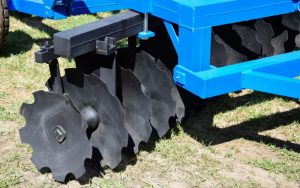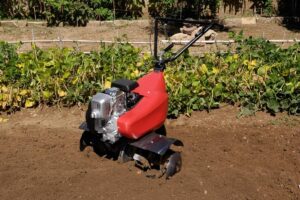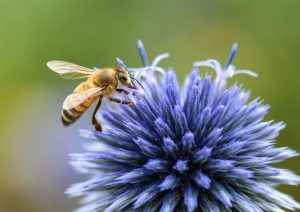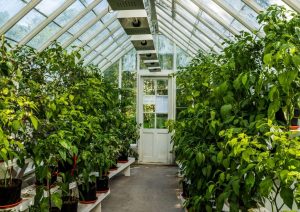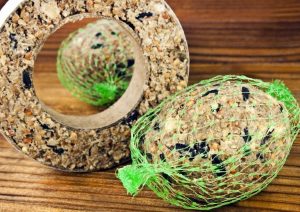If you’re in the market for a watering can, you may have noticed that there are quite a few options made of copper.
But are copper watering cans really better for plants?
Copper is a naturally occurring element that is found in rocks and soil. It is non-toxic and has been used in gardening since ancient times. Copper is beneficial to plant growth because it helps prevent certain diseases, provides essential nutrients, and improves drainage. However, it is important to note that too much copper can be harmful to plants.
How does copper benefit plants
Copper is an essential micronutrient for plants and plays an important role in several plant processes, including photosynthesis, water uptake, and nutrient transport.
Copper is also known to increase disease resistance in plants.
Therefore, it stands to reason that copper watering cans would be beneficial for plants.
However, there is one potential downside to using copper watering cans—copper can be toxic to some plants.
While most plants will not be harmed by small amounts of copper, certain sensitive species may suffer from leaf discoloration or stunted growth if they are exposed to too much copper.
Can a copper watering can be beneficial to plants?
While adding copper to the soil is the most direct way to ensure that plants are getting the nutrient they need, using a copper watering can to water plants can also be beneficial.
The copper in the water can help to correct deficiencies and deliver needed nutrients directly to the roots.
In addition, using copper watering cans can have some aesthetic benefits as well. The metal ages beautifully over time, developing a lush patina.
And when used to water plants, the leaves and stems of the plants can take on a slight bronze hue.

Signs of copper toxicity in plants
Too much copper can be bad for your plants and, if you choose to use a copper watering can then you should be aware that if the can becomes worn then it could contribute to too much copper.
Discoloration of leaves
One of the earliest signs of copper toxicity in plants is discoloration of the leaves.
The leaves may turn yellow or brown and may eventually drop off.
You may also see spots or streaks on the leaves. If you notice any of these symptoms, check the soil for elevated levels of copper.
Stunted growth
If a plant is suffering from copper toxicity, it may also experience stunted growth.
The plant may be smaller than normal and may have fewer leaves.
The stems may be thinner than normal and the overall growth of the plant may be slower than usual.
Wilting
Another common symptom of copper toxicity in plants is wilting.
The plant may droop or sag, and the leaves may turn brown or yellow.
The stems may also be weak and brittle. If you notice any of these symptoms, check the soil for elevated levels of copper.
Dieback
Copper toxicity can also cause dieback, which is when the tips of the leaves or branches die and turn brown or black.
This is usually a sign that the plant is not getting enough water or nutrients. However, it can also be a sign of toxicity if other symptoms are present as well.
How to deal with copper toxicity
If you think your plants may be suffering from copper toxicity, read on for some tips on how to deal with it.
Test the soil
The first step in dealing with copper toxicity is to test the soil.
You can do this with a soil test kit or by sending a sample of your soil to a testing lab.
If the test shows that the level of copper in the soil is high, you’ll need to take steps to reduce it.
Amend the soil
One way to reduce the level of copper in the soil is to amend it with organic matter.
This can be done by adding compost or other organic matter to the soil.
The organic matter will bind with the copper and make it less available to the plants.
Flush the soil
Another way to reduce the level of copper in the soil is to flush it out with water.
This can be done by watering the plants deeply and frequently.
The water will leach the copper out of the soil and into the groundwater where it will not be available to plants.
Choose plants carefully
When choosing plants for your garden, be sure to select those that are tolerant of high levels of copper in the soil.
Some plants that are tolerant of high levels of copper include: roses, tomatoes, potatoes, garlic, and eggplants.
Limit fertilizer use
If you must use fertilizer, choose one that is low in copper or use it sparingly.
Be sure to follow the directions on the fertilizer package carefully so that you do not over-fertilize your plants and end up causing more harm than good.
Final Words
Copper watering cans are a good choice for many gardens.
Not only do they look good but they can also provide some benefits to plants.
However, it’s important to be aware of the potential for copper toxicity and take steps to prevent it.
Test your soil regularly and take steps to reduce the level of copper if it gets too high.
Choose plants carefully and use fertilizer sparingly to help prevent problems.
Read Next
Growing a Japanese Shisho plant


